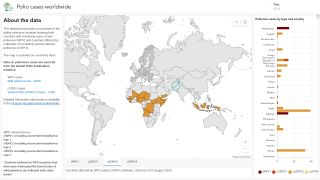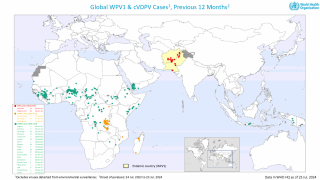17 Additional AFM Cases Reported

So far in 2018, there are 182 confirmed cases of Acute flaccid myelitis (AFM), which is a rare, but serious condition that affects the nervous system.
These cases were reported by 39 states and are among the total of 336 cases that the Centers for Disease Control and Prevention (CDC) received of Patients Under Investigation (PUI) report by December 24, 2018.
The leading states reporting AFM cases during 2018 are Texas (25), Colorado (15), Ohio (12), New Jersey (10), Washington (10) and several reporting (9) AFM cases during 2018.
These totals may increase as the CDC and state health departments are still investigating 154 of these PUIs.
At this same time of year, many viruses commonly circulate, including enteroviruses, and will be temporally associated with AFM.
Non-polio enteroviruses cause about 10 to 15 million infections and tens of thousands of hospitalizations each year in the USA, says the CDC.
Most people who get infected with these viruses do not get sick or they only have mild illness, like the common cold.
But some people can have serious complications, especially infants and people with weakened immune systems.
AFM is a complex condition that is difficult to determine why only some people go from having a mild respiratory illness (90%) to developing AFM, says the CDC.
The CDC says it has tested different specimens from AFM patients for a wide range of pathogens.
The CDC did detect coxsackievirus A16, EV-A71, and EV-D68 in the spinal fluid of 4 of 508 confirmed cases of AFM since 2014.
For all other AFM patients, no pathogen has been detected in their spinal fluid to confirm a cause.
Moreover, the CDC now says these AFM cases are not caused by poliovirus, because all the stool specimens from AFM patients that we received tested negative for poliovirus.
The CDC has published a document in 2014 named “Interim Considerations for Clinical Management of Patients with AFM.”
After 4 years of ‘best practices in patient care and treatment experience’, the CDC updated the document and released it in November 2018.
While the CDC does not know the cause of these AFM cases, it’s always important to practice disease prevention steps, such as staying up-to-date on vaccines, like polio.
Our Trust Standards: Medical Advisory Committee


























